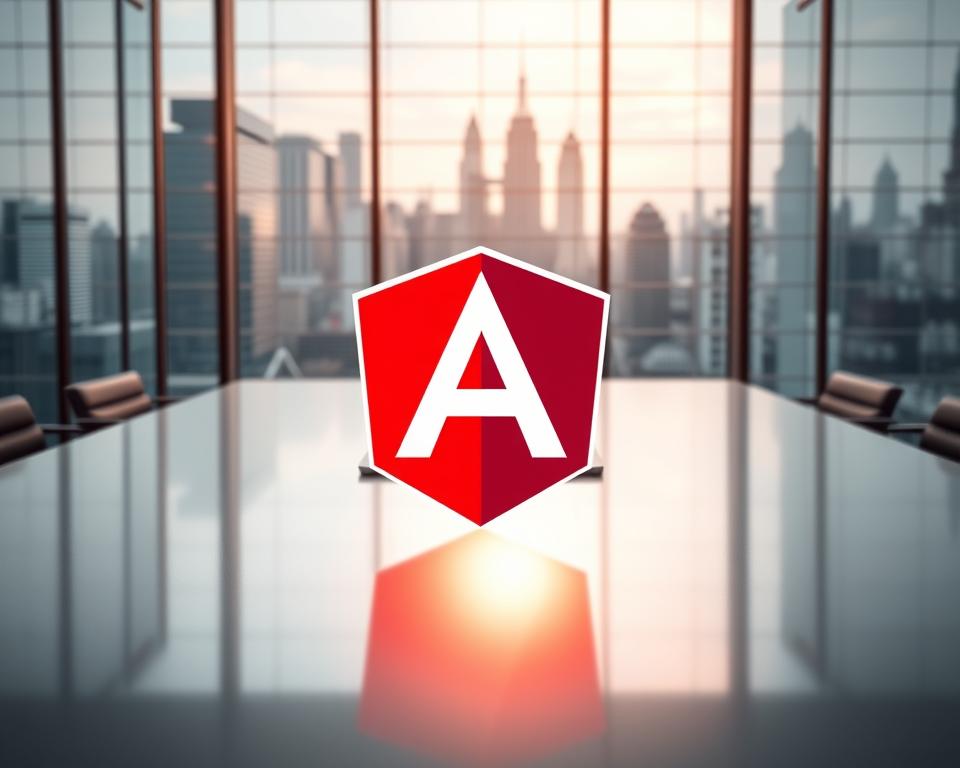JavaScript frameworks are key for web development. They help developers make complex apps quickly and efficiently. Choosing the right one can be tough, especially with so many options.
Frameworks like React, Angular, and Vue.js are popular. Knowing their features and benefits is important for making the right choice.
For developers wanting to keep up with trends, visiting a web development resource is helpful. It offers insights into JavaScript frameworks and web development. Exploring top frameworks helps developers understand the tools behind modern web apps.
Table of Contents
Introduction to Top Frameworks
JavaScript frameworks are crucial for web development. They help create fast, scalable, and easy-to-maintain apps. It’s important to know about the top frameworks and their abilities.
When choosing a framework, consider performance, security, and ease of use. This ensures a successful project outcome.
Key Takeaways
- JavaScript frameworks are essential tools for web development
- Top frameworks include React, Angular, and Vue.js
- Understanding framework features, benefits, and use cases is crucial for making an informed decision
- Web development resources can provide valuable insights into the latest trends and technologies
- Choosing the right framework can ensure a successful project outcome
- JavaScript frameworks can help build fast, scalable, and maintainable applications
Understanding JavaScript Frameworks: A Comprehensive Overview
JavaScript frameworks are key for web development. They offer pre-built structures and libraries to make development easier. These frameworks improve code quality, cut down development time, and boost performance. They are more efficient than vanilla JavaScript for complex web apps.
One big framework benefit is faster development. Developers can focus on the app’s core functions, not building everything from scratch. This is crucial for big apps, saving time and effort. Popular frameworks like React, Angular, and Vue.js each have their own strengths.
Choosing between a framework and vanilla JavaScript depends on the project’s needs. Vanilla JavaScript gives more control but takes longer to build and maintain. Frameworks offer a structured way but need more learning. The right choice depends on the project, the developer’s skills, and the desired outcome.
- Improved code quality and maintainability
- Reduced development time and effort
- Enhanced performance and scalability
- Access to a wide range of libraries and tools
Knowing the benefits of JavaScript frameworks helps developers choose wisely. They can use the right framework to create top-notch web apps.
The Current State of JavaScript Framework Ecosystem
The world of JavaScript frameworks is always changing. New tools and technologies keep popping up. Today, we see a big move towards serverless apps, progressive web apps, and mobile-first designs. This change aims to make apps faster, more efficient, and scalable.
React, Angular, and Vue.js are getting more popular. They are key players in web development. Each has its own strengths and weaknesses. The right choice depends on the project’s needs, like complexity and scalability.
Serverless architecture is becoming more popular. It lets developers create apps without worrying about servers. This method cuts costs, boosts scalability, and makes apps more reliable. As the ecosystem grows, we’ll see even more new ideas in web app development.
The JavaScript framework world is set to keep growing. It will focus on performance, security, and scalability. Developers need to keep up with new trends to create top-notch apps that users love.
React: The Popular Choice for Modern Web Development
React is a top JavaScript framework for making user interfaces and single-page apps. It was made by Facebook and is famous for its key features. These include a component-based design, a virtual DOM, and a big library of tools. For React development services, companies seek skilled developers. They use these features to build apps that are both scalable and efficient.
In modern web development, React is a favorite because it handles complex interfaces well. It also has a big community of developers. Some of the key features of React are:
- Component-based architecture
- Virtual DOM
- Large ecosystem of libraries and tools
React’s component-based design lets developers split big interfaces into smaller parts. This makes managing big apps easier. The virtual DOM helps in efficient rendering, boosting app performance. With a vast library of tools, React helps developers solve common problems and build complex apps fast.
Key Features of React
React’s key features make it perfect for modern web development. Its design, virtual DOM, and big library of tools help developers build complex apps quickly. Whether it’s a small app or a big enterprise app, React has the key features needed to succeed.
Angular: Enterprise-Level Framework by Google
Angular is a top-notch enterprise-level framework made by Google. It’s perfect for creating complex web apps. It comes with tools like dependency injection, services, and a strong templating engine.
Being an enterprise-level framework, Angular is a hit in big companies. It’s great for big apps because it’s scalable, secure, and easy to keep up. Google’s backing means it always keeps up with web trends.
- Improved code organization and reusability
- Enhanced performance and scalability
- Strong security features and best practices
Angular is a strong and adaptable framework. It helps developers make complex web apps fast and well. Its solid features and Google’s support make it a favorite among developers and big companies.
Vue.js: The Progressive JavaScript Framework
Vue.js is a progressive framework that makes building web apps easy. It has a simple way to create reusable components. This makes it perfect for complex and scalable apps.
Vue.js is great because it fits well into existing projects. It’s perfect for those who want to explore frontend development technologies without starting over. Developers can make powerful interfaces with HTML, CSS, and JavaScript.
Vue.js has a component system and a reactivity system. These features help manage data and make code reusable. It also comes with a CLI and tools to make development easier.
Vue.js is a strong and adaptable framework. It’s easy to use, flexible, and scalable. Developers can build complex web apps quickly and efficiently. It’s a top choice for many projects.
Comparing Performance Metrics Across Frameworks
Choosing a JavaScript framework means looking at performance closely. Each framework has its own performance metrics. These metrics affect how users feel about your app. It’s key to compare frameworks to find the best one for you.
Slow apps can make users leave quickly. This can hurt your app’s success. So, how fast your app loads is very important.
A study by Next Big Technology shows React, Angular, and Vue.js differ in loading times and size. This is crucial for developers to know.
Key Performance Metrics
- Loading times and bundle sizes
- Runtime performance
- Memory usage and optimization
Looking at these metrics helps developers pick the right framework. This way, they can build apps that are fast, efficient, and easy to use.
Top JavaScript Frameworks for Web Development: Selection Criteria
Choosing the best JavaScript frameworks for web development involves several key factors. These include performance, scalability, and how easy they are to use. Developers need to think about their project’s needs, their team’s skills, and the framework’s community support.
For example, a project needing quick development might choose React. It’s known for being flexible and well-supported by a large.
Developers should follow a structured approach to pick the right framework. Important considerations include:
- How fast the framework loads and runs
- Its ability to scale with growing traffic
- How easy it is for the team to learn and use
- The size and quality of the community support
By weighing these factors, developers can make a smart choice. The right framework can greatly influence a project’s success, as industry experts agree.
Framework Learning Curves and Developer Experience
Choosing a JavaScript framework involves considering the learning curve and developer experience. A steep learning curve can cause frustration and slow down work. On the other hand, a gentle curve makes development faster and more fun. Good documentation is key, as it affects how easy it is to learn and use the framework.
Quality documentation helps developers grasp the framework quickly. This means they spend less time learning and more time coding. Documentation quality is about clear, accurate, and relevant information. A well-documented framework helps solve problems fast, improving the developer experience.
Several factors influence the learning curve and developer experience of JavaScript frameworks. These include:
- Code complexity and readability
- Community support and available resources
- Documentation quality and availability
These factors are crucial when picking a framework. A framework with a gentle learning curve, good documentation, and strong community support ensures a positive experience.
React, Angular, and Vue.js each have their own learning curve and developer experience. React is known for being easy to learn. Angular is more complex. Vue.js stands out for its community support and detailed documentation. Knowing these differences helps developers choose the right framework for their needs.
Backend Integration Considerations
When we talk about backend integration, we’re looking at server-side rendering, API connectivity, and data storage. JavaScript frameworks play a big role in how well these work together. It’s key to pick the right one for your project. For example, backend integration with Node.js, Ruby on Rails, or Django needs careful thought.
Some important considerations for backend integration are:
- Server-side rendering: How will the framework handle server-side rendering, and what are the implications for performance and scalability?
- API connectivity: How will the framework interact with APIs, and what are the security implications of these interactions?
- Data storage: How will the framework store and manage data, and what are the implications for data security and integrity?
By carefully looking at these considerations and picking the right JavaScript framework, you can make sure your backend integration goes smoothly. This will help your application run better and be more secure.
Mobile Development Capabilities
JavaScript frameworks bring a lot to mobile development. They make creating progressive web apps easier. This is key in today’s web world.
Frameworks like React, Angular, and Vue.js help a lot. They offer responsive design, offline support, and push notifications. These features make apps better for users. They also have tools like code splitting and tree shaking to help developers.
Using JavaScript frameworks for mobile apps has many benefits. Here are a few:
- Improved performance
- Enhanced user experience
- Simplified development process
- Cost-effective
JavaScript frameworks make mobile app development better. They help create fast, engaging apps. This meets users’ needs well.
Security Considerations and Best Practices
When making web apps with JavaScript frameworks, security considerations are key. They help stop vulnerabilities and keep user data safe. With frameworks like React, Angular, and Vue.js getting more popular, it’s vital to follow best practices for web app security.
Common Security Vulnerabilities
Common issues in JavaScript frameworks include XSS, CSRF, and SQL injection. These can be fixed by using security considerations and best practices. This includes checking inputs, coding securely, and doing regular security checks.
Security Tools and Solutions
To tackle vulnerabilities and keep web apps safe, developers have many tools. They can use web application firewalls (WAFs), intrusion detection systems (IDS), and security info and event management (SIEM) systems. By using these tools and following best practices, developers can lower security risks and protect user data.
Future Trends in JavaScript Frameworks
The world of JavaScript frameworks is always changing. New trends and technologies pop up all the time. Looking ahead, we see future trends that will shape JavaScript frameworks. One big trend is serverless architecture, which lets developers build apps without worrying about servers.
Another trend is adding artificial intelligence and machine learning to JavaScript frameworks. This makes apps smarter and more interactive. JavaScript frameworks will keep being key in web development. They will focus on better performance, security, and user experience.
Some important areas to watch in JavaScript frameworks’ future include:
- Serverless architecture
- Artificial intelligence and machine learning integration
- Improved performance and security
- Enhanced user experience
As web apps get more complex, the need for future trends in JavaScript frameworks will grow. By keeping up with the latest in JavaScript frameworks, developers can create innovative web apps.
Conclusion
Choosing the right JavaScript framework is key for web development success. We’ve looked at React, Angular, and Vue.js, their strengths, and weaknesses. Developers can pick the best framework by looking at performance, learning curve, and backend integration.
Each top JavaScript framework has its own special features. React is known for its component-based design. Angular is great for big projects. Vue.js is known for being flexible and easy to use. Knowing what each offers helps developers pick the right one for their project.
The right JavaScript framework depends on many things. These include the project’s needs, the team’s skills, and the framework’s community. By picking wisely, developers can make fast, scalable, and easy-to-maintain web apps. The future of web development is bright, and the right framework can help create amazing user experiences.



















